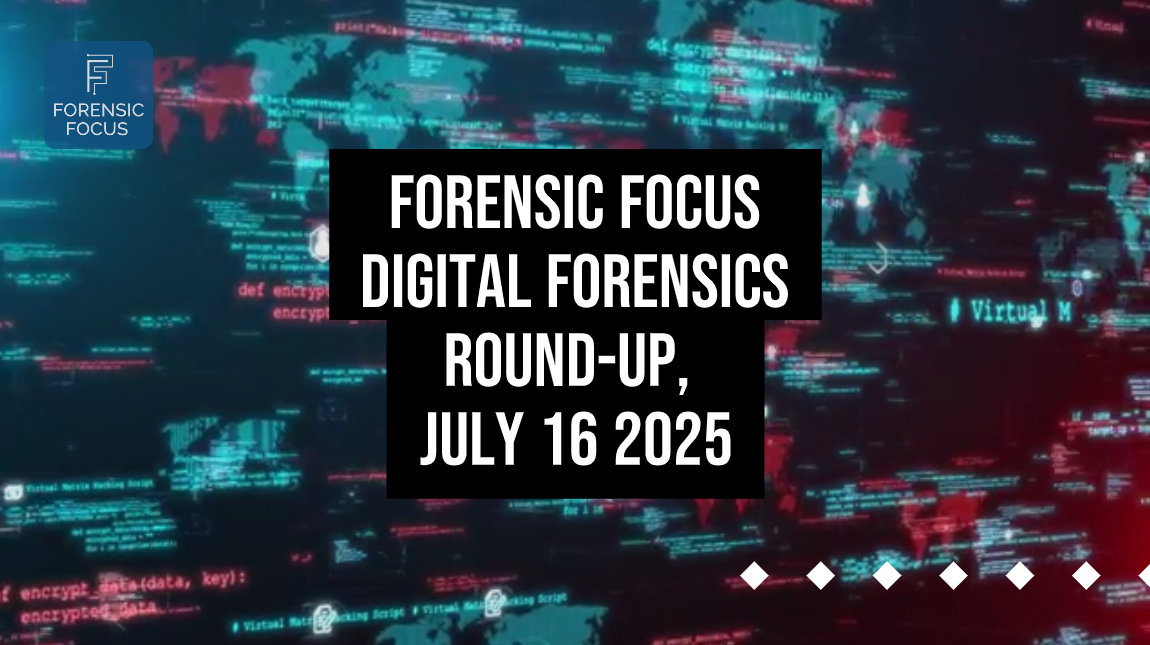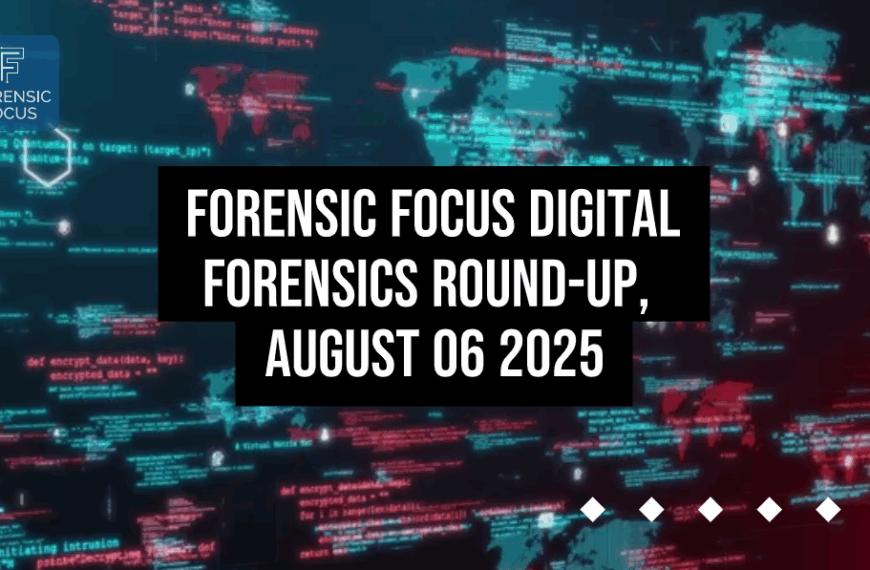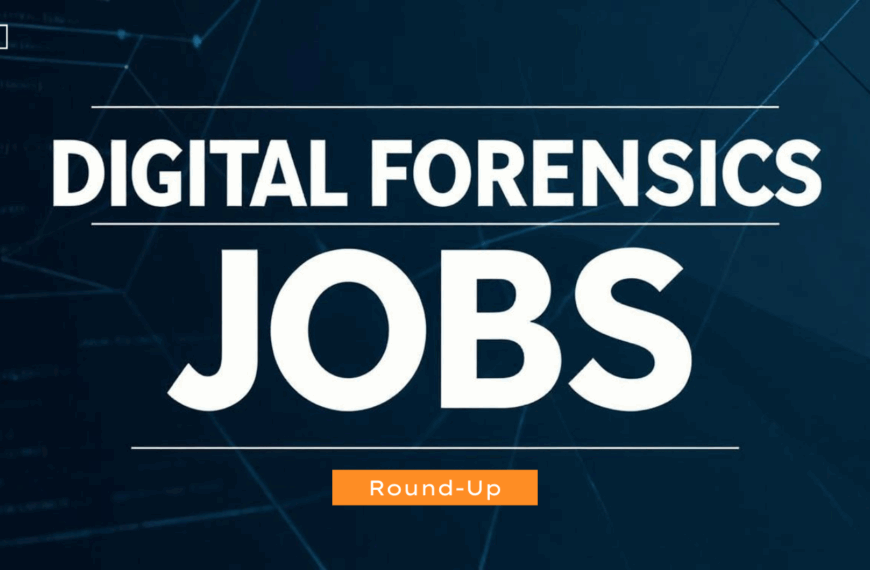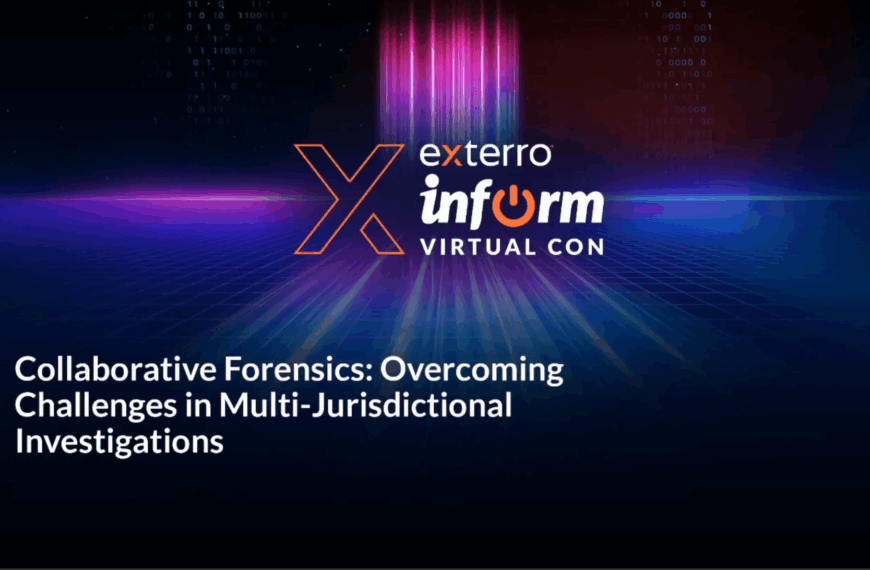A round-up of this week’s digital forensics news and views:
Six Sessions Are Not Enough: Support For Digital Forensic Investigators Must Improve
Digital Forensic Investigators routinely face disturbing material that causes long-term psychological harm, including PTSD, burnout, and depression. Yet many are offered just six therapy sessions—an inflexible standard that fails to address the depth of trauma they experience. True recovery requires sustained, trauma-informed care tailored to the demands of the role. Without proper support, DFIs are left vulnerable, with their wellbeing treated as an afterthought.
Karen Read Trial: Expert Explains ‘Hos Long To Die In Cold’ Search And Deleted Calls
The Karen Read trial highlights the immense influence—and frequent misinterpretation—of digital evidence in court. Expert testimony corrected critical misconceptions, including a misread Google search timestamp and assumptions about call log deletions. The case reinforces the need for digital forensics experts to remain neutral, rigorously test evidence, and clearly explain findings to non-technical audiences. As data grows more complex, so too must the legal system’s understanding of its limits and meaning.
Four arrested in connection with M&S and Co-op cyber-attacks
Four people have been arrested in connection with major cyber-attacks on M&S, the Co-op, and Harrods that caused extensive disruption and data breaches. The suspects—aged 17 to 20 and including one Latvian national—were detained on suspicion of hacking, blackmail, money laundering, and organised crime activity. Police seized electronic devices during early morning raids, describing the operation as a key step in an ongoing international investigation. The attacks, involving stolen data and ransomware, are expected to cost M&S alone up to £300 million.
Metadata Shows the FBI’s ‘Raw’ Jeffrey Epstein Prison Video Was Likely Modified
Metadata from surveillance footage released by the DOJ, purportedly showing the area outside Jeffrey Epstein’s cell, reveals it was likely processed using Adobe Premiere Pro, undermining claims that it was “raw.” While experts say the edits may be benign—such as stitching clips or standard format conversion—the lack of transparency about how the video was handled raises serious questions about chain of custody. Shifts in aspect ratio and embedded editing traces further fuel public suspicion, especially in a case already plagued by conspiracy theories. Calls for direct exports from original systems highlight the growing scrutiny on digital evidence in high-profile cases.
Data-Driven Digital Evidence Analysis for the Forensic Investigation of the Electric Vehicle Charging Infrastructure
The rapid growth of electric vehicle charging infrastructure has introduced serious cybersecurity risks, yet forensic investigation methods tailored to this complex environment remain underdeveloped. New research proposes a data-driven framework for systematically identifying, classifying, and correlating digital evidence across physical, network, and application layers of EV charging systems. It maps cybersecurity threats to potential evidence sources, integrates OSINT, and outlines adaptable workflows to support incident response and forensic readiness. Case studies demonstrate the framework’s effectiveness in bridging gaps in current forensic practices and enhancing the resilience of EV charging ecosystems.
Trucking Attorneys—Your Cell Phone Forensics Report Is Missing Data
A trucking accident case reveals how a selectively generated phone forensics report concealed critical evidence of distracted driving—only uncovered when the full extraction file was reviewed. This example underscores the dangers of relying on simplified summary reports, which can omit vital logs, app usage, and screen interactions that drastically impact case outcomes. In high-stakes litigation, attorneys must insist their experts analyze complete forensic files, not just curated summaries, to ensure no evidence is overlooked or biased. The difference isn’t technical—it’s the line between winning and losing.
Sibe, digital forensics expert, named cybersecurity personality of the year
Robinson Tombari Sibe, a leading Nigerian cybersecurity and digital forensics expert, has been named Cybersecurity Personality of the Year at the 2025 National Cyber Security Conference in Abuja. Recognised for his work in digital investigations, policy development, and cybersecurity capacity building, Sibe leads two firms—Digital Footprints and Abatis Technology—serving government, finance, and SMEs. He also plays a prominent role in academia and co-authored a key text on cybercrime in Nigeria. The award highlights both his individual impact and Nigeria’s growing leadership in cybersecurity innovation.
Support for victims of revenge porn ‘isn’t good enough’
Northern Ireland remains the only part of the UK and Ireland without a publicly funded service to help victims of intimate image abuse remove non-consensual content, prompting criticism from campaigners and victims. Assembly member Cara Hunter, herself a deepfake victim, is calling for urgent funding to extend takedown support already available in other regions. Victims currently face navigating removal efforts alone, often retraumatised by insensitive treatment and legal dead ends. While the Department of Justice says it is exploring options, advocates argue this delay reflects a systemic lack of urgency.







